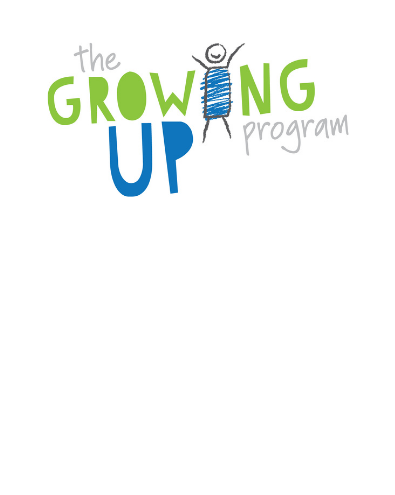The Growing Up Program (GUP) for Parents/Carers
The Growing Up Program (GUP) is Tasmania’s leading relationships, sexuality and protective behaviours’ program for students from Kindergarten through to year 6.
It is facilitated by an experienced team of Family Planning Tasmania educators, and is age and developmentally appropriate, sequential, and evidence-based.
The program is aligned to the:
- Australian Curriculum
- Early Years learning Framework
- Respectful Relationships Teaching and Learning Package
GUP reflects the latest in sexual and reproductive health research, and aims to maximise learning outcomes, and increase positive communication between parents /carers and their child/children.
Growing Up educators will encourage children to talk to their families and other trusted adults and consider their own/family’s beliefs and values.
Family Planning Tasmania recommends that students be provided with relationships, sexuality and protective behaviors’ education each year.
Key GUP Focus areas for Kindergarten to Year 2
- Identity- begin to understand identity, learning to respect and value diversity in self and in others.
- Respectful Language – accurate and respectful language including the correct names for body parts
- Growth and Change – exploring how their body changes from a baby to a child
- Wellbeing – Promotion of physical, social, emotional and mental health and wellbeing.
- Respectful Relationships – developing basic skills to understand their rights and responsibilities.
- Protective Behaviors – correctly naming body parts and identifying those that are private; understanding the difference between public and private places; types of touch; and learning to identify the warning signs their body may display in a situation that is not ok, uncomfortable or unsafe.
- Help Seeking Behaviors – how to seek help when needed.
Key GUP focus areas for Years 3 and 4
- Identity – understanding identity, learning to respect and value diversity in others.
- Respectful Language – including correct name for body parts and functions
- Growth and Change- understanding how their body works and why changes occur as they grow older.
- Puberty – understanding puberty and learning how to manage changes.
- Conception & birth – exploring how babies are made and correcting common myths and misinformation.
- Wellbeing – promotion of physical, social, emotional and mental health and wellbeing.
- Respectful Relationships – developing skills to understand their rights and responsibilities.
- Protective behaviors – types of touch; online safety; and learning to identify the warning signs their body may display in a situation that is not ok, uncomfortable or unsafe.
- Help Seeking Behaviors – how and when to seek help, including opportunity to analyse and respond to scenario situations where help may need to be sought for self and/or others.
Key GUP focus areas for Year 4 / 5 combined class
- Identity – understanding their identity, learning to respect and value diversity in others.
- Respectful Language – including correct names for body parts and functions
- Growth, Change & Puberty – exploring the physical, social and emotional changes and influences of puberty, and developing skills and strategies they can use to manage these changes
- Conception & birth – exploring how babies are made and correcting common myths and misinformation.
- Wellbeing – promotion of physical, social, emotional and mental health and wellbeing.
- Respectful Relationships – developing skills to understand their rights and responsibilities.
- Protective behaviors – types of touch; online safety; and learning to identify the warning signs their body may display in a situation that is not ok, uncomfortable or unsafe.
- Help Seeking Behaviors – how and when to seek help, including opportunity to analyse and respond to scenario situations where help may need to be sought for self and/or others.
Key GUP focus areas for Year 5 and 6
- Identity – students are encouraged to look at their beliefs and values and those of others, and explore what it is that makes people who they are.
- Respecting Diversity – recognition of similarities and differences between people and learning to value and respect diversity.
- Growth, Change & Puberty – exploring the physical, social and emotional changes and influences of puberty in greater depth, and develop and appraise skills and strategies they can use to manage these changes. Investigating the reproductive system.
- Exploring Wellbeing strategies to promote physical, social, emotional and mental health and wellbeing.
- Respectful relationships – exploring the rights and responsibilities of themselves and others and understanding what is ok and not ok in different types of relationships.
- Decision making – exploring the process of decision making, taking into account the choices we make, influences, and the impact these have on ourselves and others. E.g. risk-taking and the law.
- Managing Influence – recognising how media, peers and others in the community, including social media, influence respectful relationships and healthy decision making.
- Protective Behaviors – previous knowledge is reinforced with emphasis placed on recognising the characteristics of a respectful relationship and balance of power within respectful relationships.
- Help Seeking Behaviors – how and when to seek help, online safety, and gives opportunity to analyse and respond to scenario situations where help may need to be sought.
Will the classroom teacher attend the Growing Up Program?
Yes, the classroom teachers will be present so that they are aware of what has been taught, and can support students and answer any questions after the program.
Can I meet with the Educator delivering the program?
A parent/carer information session will be available before the program starts. Further information about the program will be provided by the school. This session will go over course content and explain how the program addresses the requirements of the Australian Curriculum and student needs. If you have any questions or concerns you can speak with an educator prior to, or during the program. Your school can arrange this.
What if a child in the class asks a question that my child is not ready for?
Educators are prepared for questions to be asked by children throughout their sessions. These questions will be met with respectful, age-appropriate answers.
How can I support the program from home?
Educators will encourage your child/children to talk with you about what they have learnt, but you may need to start the conversation for them. Keep communication open; it is ok to take time to consider your response to a question rather than feeling you must answer straight away. You can read more here.
Is it necessary for my child to be learning about puberty at such a young age?
The Growing Up Program introduces the topic of puberty at grade 3 and builds upon student knowledge throughout the upper primary school years.
Research has found that children in Australia are showing signs of puberty earlier than in the past. An Australian study in 2014 found that 16% of girls and 7% of boys are showing definite signs of puberty at 8-9 years of age, with 74% of girls and 53% of boys showing signs by 10-11 years of age (Edwards, 2014).
This highlights the importance of discussing puberty and the changes children can expect to occur at this age, as many young people will be beginning to notice signs of puberty, or recognise changes in their peers.
Why does my child need to be taught protective behaviours?
The Growing Up Program introduces protective behaviours in a very gentle way. It is not about making children scared of the world, but providing them with the knowledge and skills to identify when a situation is not ok, making them feel unsafe, and how and where to access help should they need it.
Why does my child need to be taught online safety?
It is important for children to be taught online-safety early on so that they develop safe online habits and understand the importance of speaking to a trusted adult if they ever feel uncomfortable or unsafe online.
Unfortunately many young people are being exposed to pornography at a young age, and this exposure is influencing their perceptions of respectful relationships. A 2015 study has found that the median age of first viewing pornography in Australia is 13 years old for boys and 16 for girls (Lim, Agius, Carrotte, Vella & Hellard, 2017). This does not mean that the viewing is intentional, for many children the viewing of adult content can be accidental.
By educating children about safe online practices early on, it is hoped that accidental viewing of content will reduce, and children will know how to respond and who to talk to if help or advice is ever needed.
I am concerned about the age at which young people are becoming sexualised. Why can’t we just let kids be kids?
Our program is age and developmentally appropriate and is focussed on increasing the safety and health of young people and acts as a protective factor against sexualisation.
“Research suggests …., discussion of healthy sexuality leads to increased body confidence and self-esteem, which are factors that protect individuals from being sexually abused.” (Talking to your kids about sex |Psychology Today, March 31, 2022).
For more information, or to book a Growing Up Program contact GUP@fpt.asn.au
Click here for a fantastic resource for families, Talk Soon, Talk Often
Other Useful Information
We have created articles specifically for parents and carers to support your young people around their sexual and reproductive health. Click the button below to read these articles.
Advice and Information for Parents & Carers
Kinder to Year 2 GUP Information sheet 2022
Year 3 & 4 GUP Information sheet 2022
Year 4 & 5 combined GUP Information sheet 2022
Year 5 & 6 GUP Information sheet 2022
Article on The Conversation 'Australian parents want schools to teach more sex education topics and teach them from an earlier age'.
If you have any questions or concerns, please use the below contact form.
Parent & Carer Contact Form - Growing Up Program
Please complete this form if you have any questions or concerns to raise with our Education team around your young person's participation in the Growing Up Program. One of our friendly educators will be in contact around your concern.
more programs
Parent & Carer Information Session Video Series
We have created a video series that provides additional information for parents and carers of students about to start the Growing Up Program.
Introduction Video
Video 1 – What is the Growing Up Program?
Video 2 – Kindergarten to Year 2
Video 3 – Years 3 & 4
Video 4 – Years 5 & 6
We're here for you at every stage of life
We have clinics in Burnie, Launceston, and Hobart. Interpreter services available.


